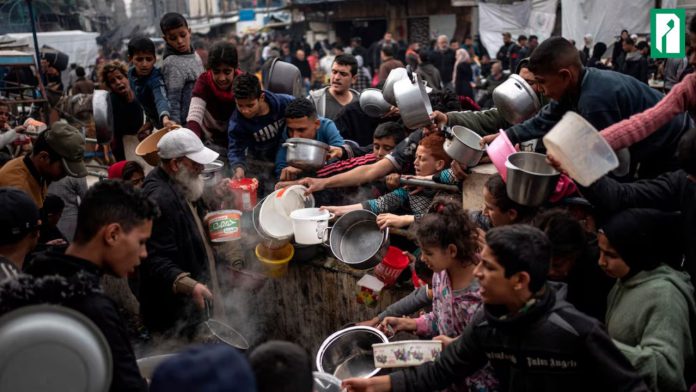The humanitarian catastrophe in Gaza continues to deepen as the Palestinian Ministry of Health reported on Thursday that four more individuals have died of hunger and malnutrition in the past 24 hours. This brings the total number of starvation-related deaths in the besieged enclave to 197, including 96 children.
In an official statement, the ministry warned that the crisis is escalating rapidly, with severe shortages of food, clean water, and medical supplies affecting nearly every resident of the densely populated territory of 2.4 million people. Since March, most land crossings into Gaza have remained sealed, significantly hampering the delivery of life-saving humanitarian aid.
The Ministry renewed its urgent appeal to the international community and humanitarian agencies for immediate intervention, stressing that the population cannot survive under such extreme conditions.
According to the United Nations Relief and Works Agency (UNRWA), cases of acute malnutrition among children under five have doubled between March and June due to the near-total collapse of food supply chains. The World Health Organization (WHO) confirmed that nearly one in five children in Gaza is now suffering from severe malnutrition.
“This level of suffering is unprecedented,” said a WHO spokesperson. “The continued blockade and obstruction of aid are directly contributing to the rising death toll.”
The ongoing crisis is compounded by sustained Israeli military operations, which have left over 209,000 people killed or injured, based on figures released by Palestinian authorities. The majority of the casualties are reported to be women and children.
International organizations have repeatedly called for an immediate ceasefire and the establishment of safe humanitarian corridors. However, access to aid remains limited due to security concerns, damaged infrastructure, and administrative barriers.
A senior EU official, speaking to Reuters, described the situation as “extremely dangerous” and acknowledged that while there have been minor improvements—such as the limited reopening of crossings, increased fuel deliveries, and infrastructure repairs—major challenges persist.
“The absence of a safe operational environment remains the biggest obstacle to large-scale aid distribution,” the official said.
UNRWA further reported that Palestinians searching for food are being shot at, underscoring the deadly risks civilians face in their daily struggle for survival. In a post on X (formerly Twitter), the agency declared:
“This situation is no longer sustainable. People are starving and being killed while simply trying to feed their families.”
The United Nations has called for the unconditional opening of all crossings and the full access of aid organizations to carry out their humanitarian missions.
As Gaza enters what many describe as the worst humanitarian crisis in its history, the need for immediate international action has never been more urgent.

















